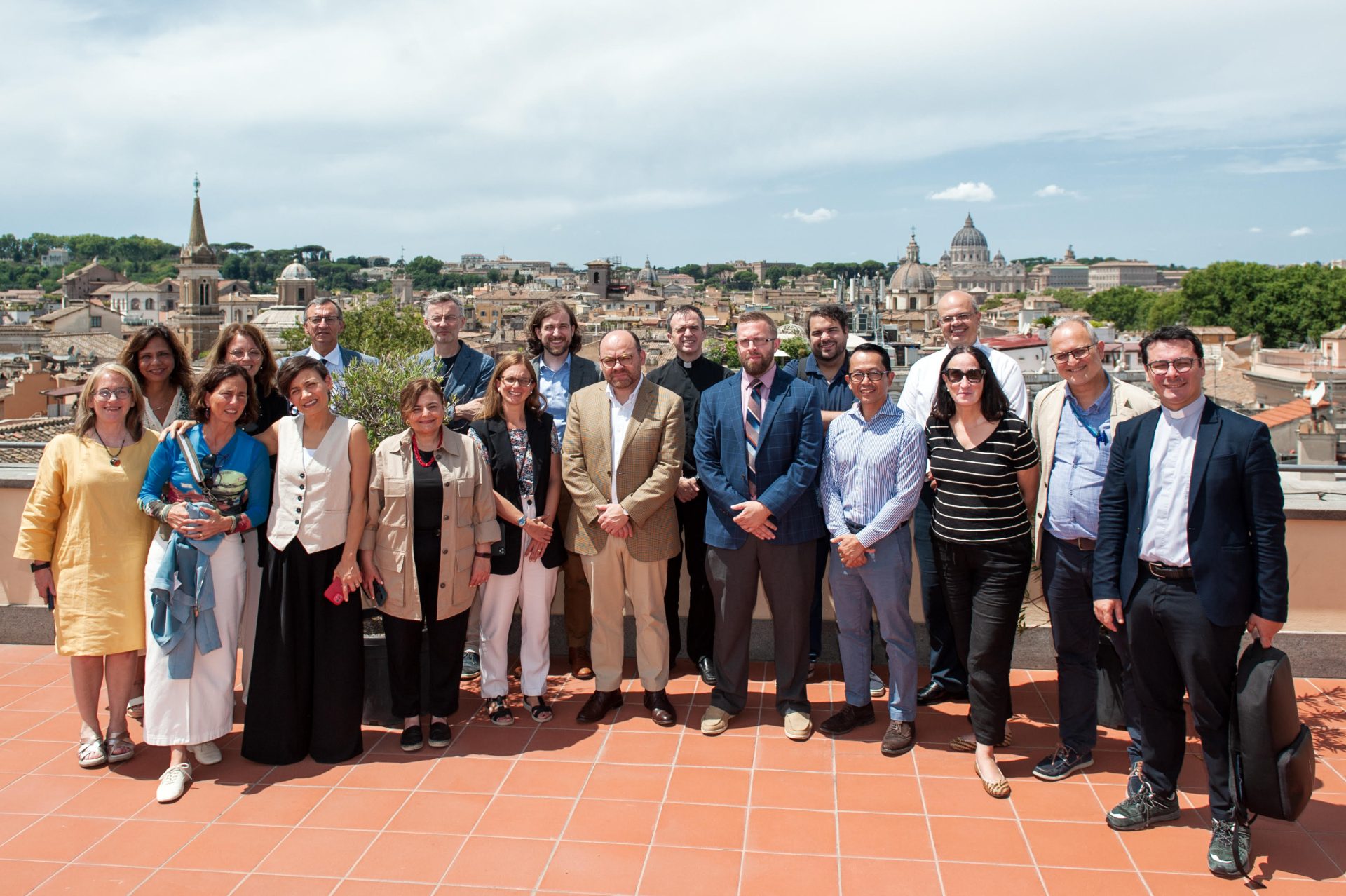Youth Jubilee: "The rediscovery of faith? It's a way to stay human."

One in two young people has developed a greater interest in spirituality in the last five years, compared to 15% who reported a decline . Young people's interest in spirituality is steadily increasing globally, according to an international study promoted by the research group " Footprints. Young people: expectations, ideals, beliefs, " presented last July 24 at the Pontifical University of the Holy Cross, in preparation for the Jubilee of Youth, scheduled from July 28 to August 3 in Rome .
The meeting—an expert meeting dedicated to youth religiosity and new research perspectives, titled "Sociological research on youth religiosity: methodologies, challenges, and new research perspectives "—brought together scholars from sociology, education, communications, and big data to analyze an increasingly evident phenomenon, even in the most secularized contexts: a new generation that is not only searching for meaning but is increasingly undertaking spiritual and faith-based journeys .

The survey, conducted between 2023 and 2024 on a sample of nearly 5,000 young people aged 18 to 29 in eight countries (Argentina, Brazil, Italy, Kenya, Mexico, the Philippines, Spain, and the United Kingdom), highlights a clear trend. This "awakening" of faith comes as no surprise to Giulio Costa , a psychologist and psychotherapist who has worked with adolescents and young adults for years. "It's a phenomenon that's been noticeable for some time," he explains. " The topic of spirituality is very present among young people, particularly among Generation Z. We see it emerging even when it's not directly linked to religion in the strict sense." This observation is also confirmed by the research data, which highlights a strong attachment to faith, regardless of the different denominations present, with particular intensity in Brazil and Kenya.
According to Costa, a form of intimate, profound, and often individual spirituality is emerging among young people. In Western society, this form of spirituality is rooted in a growing need for connection in a world perceived as uncertain, unstable, and alienating. He explains: " For many young people today, spirituality is a way to remain human in a world they feel is increasingly inhuman , to avoid the risk of turning into an avatar . They seek authentic, non-performative and non-judgmental relationships, and spaces where they can express themselves without filters, thus rediscovering a sense of truth and presence."
The Footprints research shows that despite the decades-long decline in mass attendance and declared adherence to Christianity in countries such as Italy, Spain, the United Kingdom, Argentina, and, to a lesser extent, Mexico, this trend is reversing. The Footprints study highlights that nearly 18% of young believers in Spain attend religious services or mass daily, while in Italy the percentage is approximately 16% . A need for prayer and faith also emerges even among the young people interviewed who identify as non-believers. Many of them admit to praying occasionally, especially in times of difficulty, to express gratitude or to face daily challenges. It is also striking that 42% of those interviewed who identify as atheists admit to believing in life after death, while 37% say they ask believers to pray for them .

Signs of a silent spirituality that persists even where faith seems to have vanished. After all, as Costa explains, " prayer also has a secular origin. It is a form of self-talk , a profound dialogue with oneself or with something else . From a neuropsychological point of view, it activates processes that induce relaxation and psychophysical well-being." According to the psychologist , "young people today are seeking spaces to discuss major existential issues such as life, death, and the future . While adults often avoid these topics out of embarrassment or fear, young people want to talk about them. They want to confront limitations, death, and what comes after."
Young people are looking for spaces to discuss big existential issues like life, death, and the future. While adults often avoid these topics out of embarrassment or fear, kids want to talk about them.
Giulio Costa, psychologist
This new form of spirituality can therefore also be seen as a response to the unease of our time . And it's crucial to ask whether adults and institutions are ready to listen to these needs. "The risk," warns Costa, "is that environments like youth clubs, catechism classes, or religious spaces will be perceived as incapable of addressing young people's real questions. So they look elsewhere: on social media, on YouTube , even in artificial intelligence. ChatGPT , for example, is always there, non-judgmental, and responsive. And this, for many, is reassuring."
Adults can no longer offer prepackaged answers but must instead create spaces where young people's questions can exist and find dignity. Costa explains: " The Church becomes attractive to young people if it can be a place where even those who have doubts about God or religion feel welcomed, not judged . Where adults don't impose absolute truths, but remain in the relationship." He adds: " Before even responding to young people, we should ask ourselves what our idea of spirituality is . If an adult has grappled with these issues and resolved them within themselves, they will be able to welcome the questions without embarrassment. But if they fear or avoid them, the young person will look elsewhere, often in places unprepared to truly guide them."
The Church becomes attractive to young people if it can be a place where even those who have doubts about God or religion feel welcomed, not judged. Where adults don't impose absolute truths, but remain in the relationship.
Julius Costa
Ultimately, Costa concludes, " spirituality is also a form of emotional education . A fragile and complex terrain, made up of questions, uncertainties, and a desire for truth. A teenager, by definition, is uncomfortable. But it is precisely in that discomfort that we can learn to grow with them."
Words that recall what Costa himself wrote in the issue of VITA Perché non voglio figli , where he underlines the importance of welcoming the other in his irreducible otherness, explaining that: «We must then move from parenthood as a duty to parenthood as a desire: desire as such involves a confrontation with the risk that the child may not be there, that he may be different from our expectations, even that he may be imperfect».
Photo by Cecilia Fabiano/LaPresse . Young people on Via della Conciliazione toward St. Peter's Basilica — Rome for the Youth Jubilee
With an annual subscription, you can browse over 50 issues of our magazine, from January 2020 to the present: each issue offers a timeless story. Plus, you'll get all the extra content like themed newsletters, podcasts, infographics, and in-depth articles.
Vita.it





